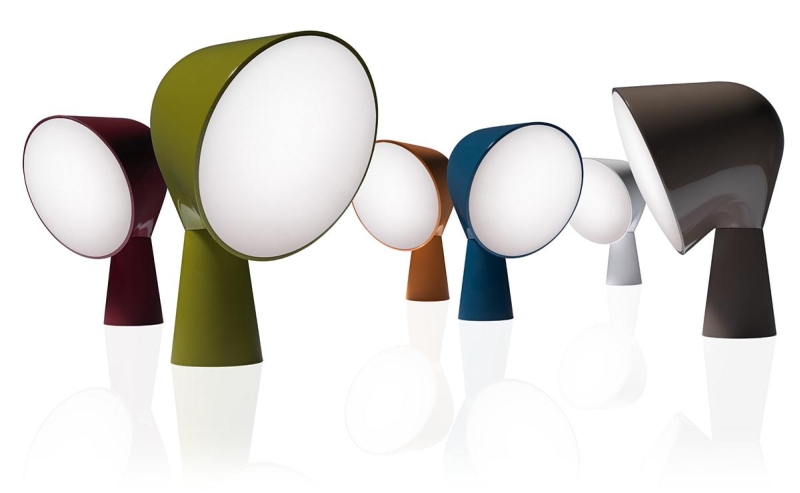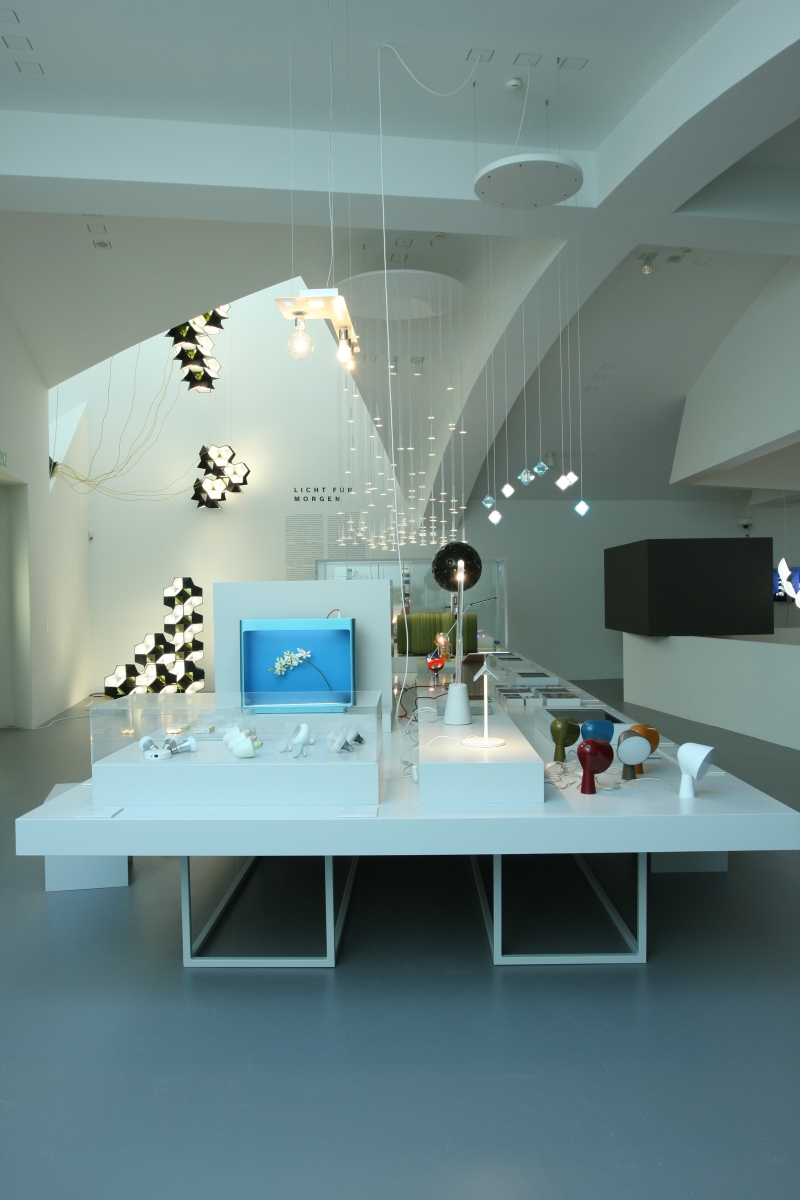"In a best case scenario, and when the technology is advanced enough, the opaque cover can be replaced by an OLED and so become the light source itself."
We admit to having wondered when we saw Ionna Vautrin's Binic lamp on the "Light for tomorrow" table at the Vitra Design Museum's Lightopia exhibition.
"Nice lamp", we thought, "but not exactly revolutionary."
First upon reading in the catalogue did we understand.

Inspired by ships funnels Binic is formally very reminiscent of Vico Magistretti's 1967 lamp Eclisse for Artemide. It has the same innocence, is just as informal and accessible, yet somehow not so flippant. Its wonderfully proportioned form combines with its matt colours to imbue the product with a little more self-respect and for us, compared to Eclisse Binic exudes a more composed authority.
And the most delightful luminescence.
If we're honest we don't know in how far Ionna Vautrin and/or Foscarini genuinely plan to replace the light bulb with an OLED.
Didn't really want to ask
For, to be honest, in a way we hope they hadn't considered the possibility until the Vitra Design Museum suggested it. And now plan to.
Aside from the product itself the most important aspect of Binic is Ionna Vautrin's nationality.
Breton.
For too long now Ronan and Erwan Bouroullec have had it too easy as everyone's favourite Breton design studio.
A bit of competition will do them good. Stop them creating wooden ducks.
And of course we can't wait to read the inevitable lazy magazine articles under the headline "Brittany - France's Creative Coast"

Binic by Ionna Vautrin for Foscarini. ...... the video.